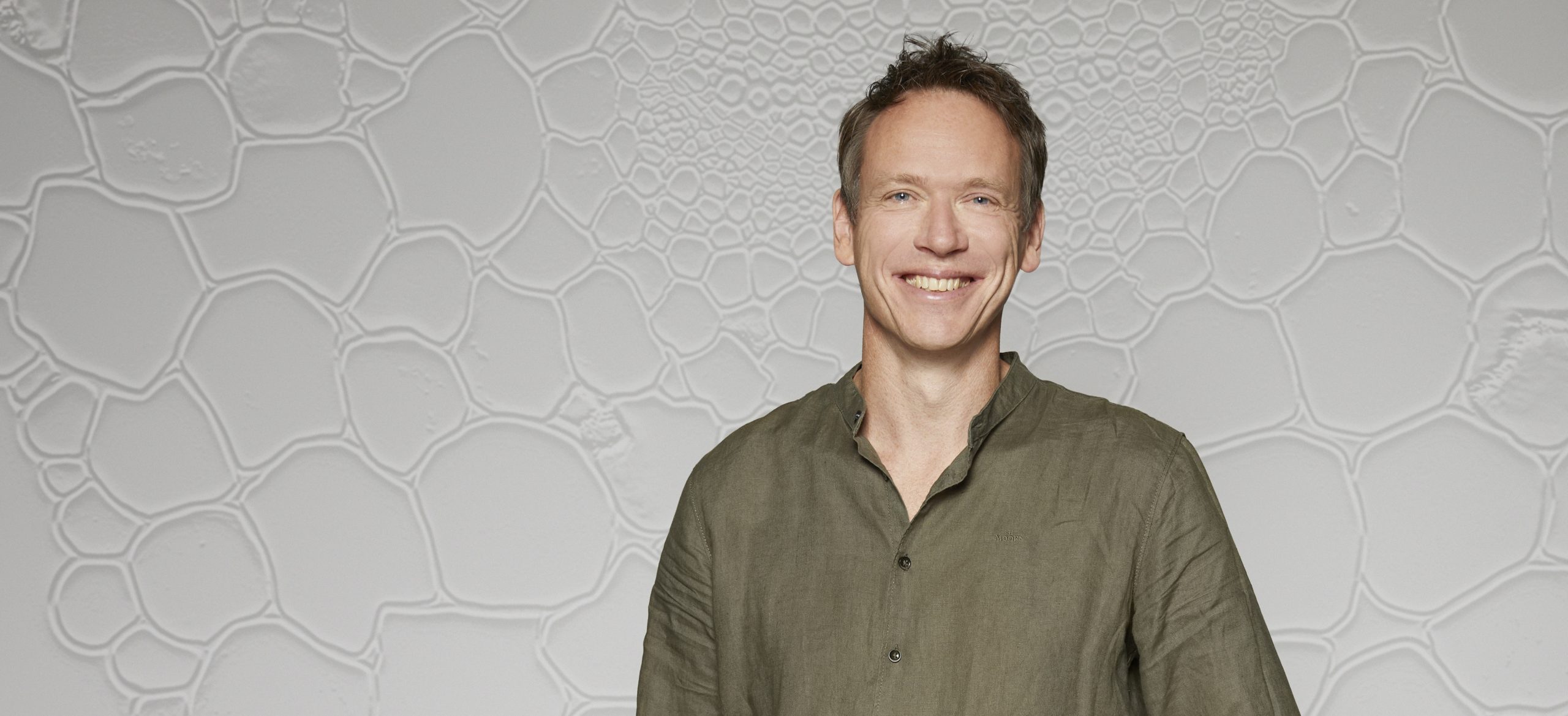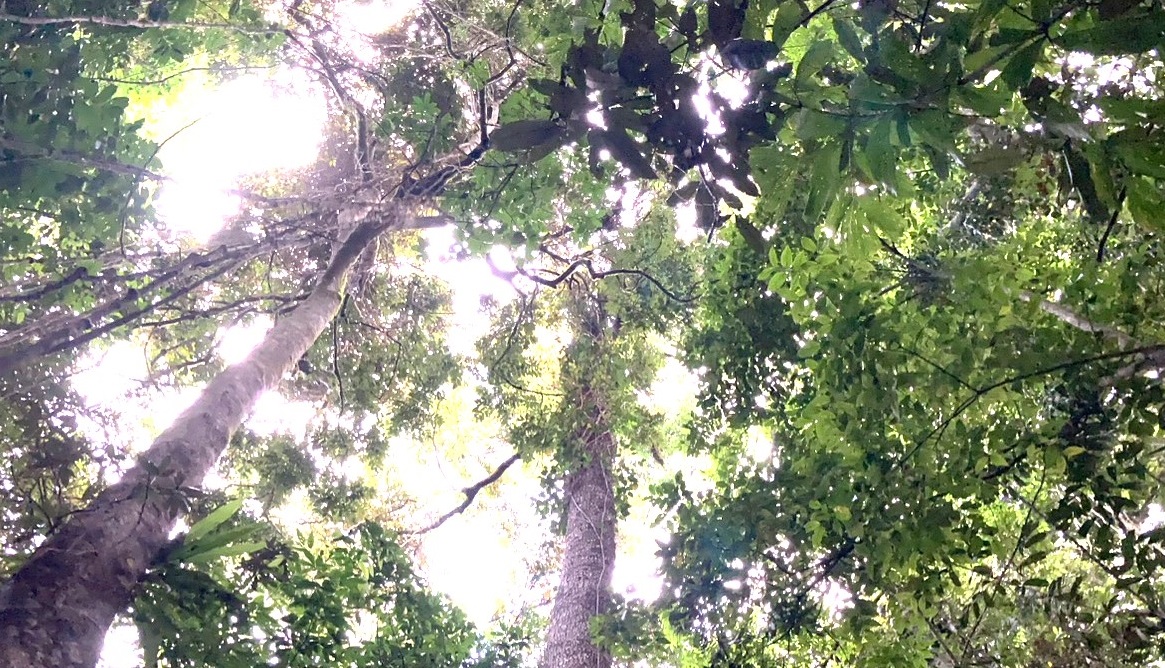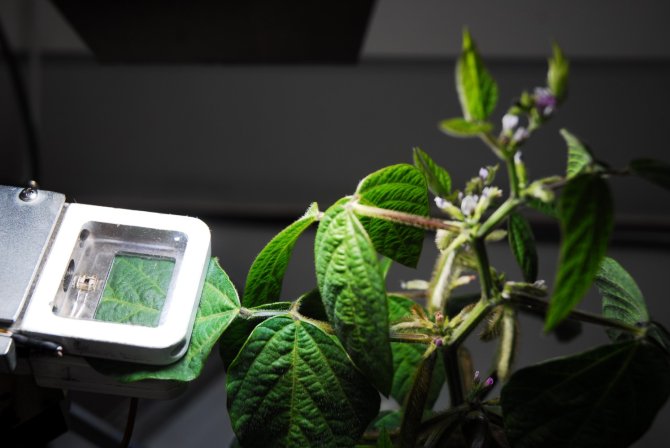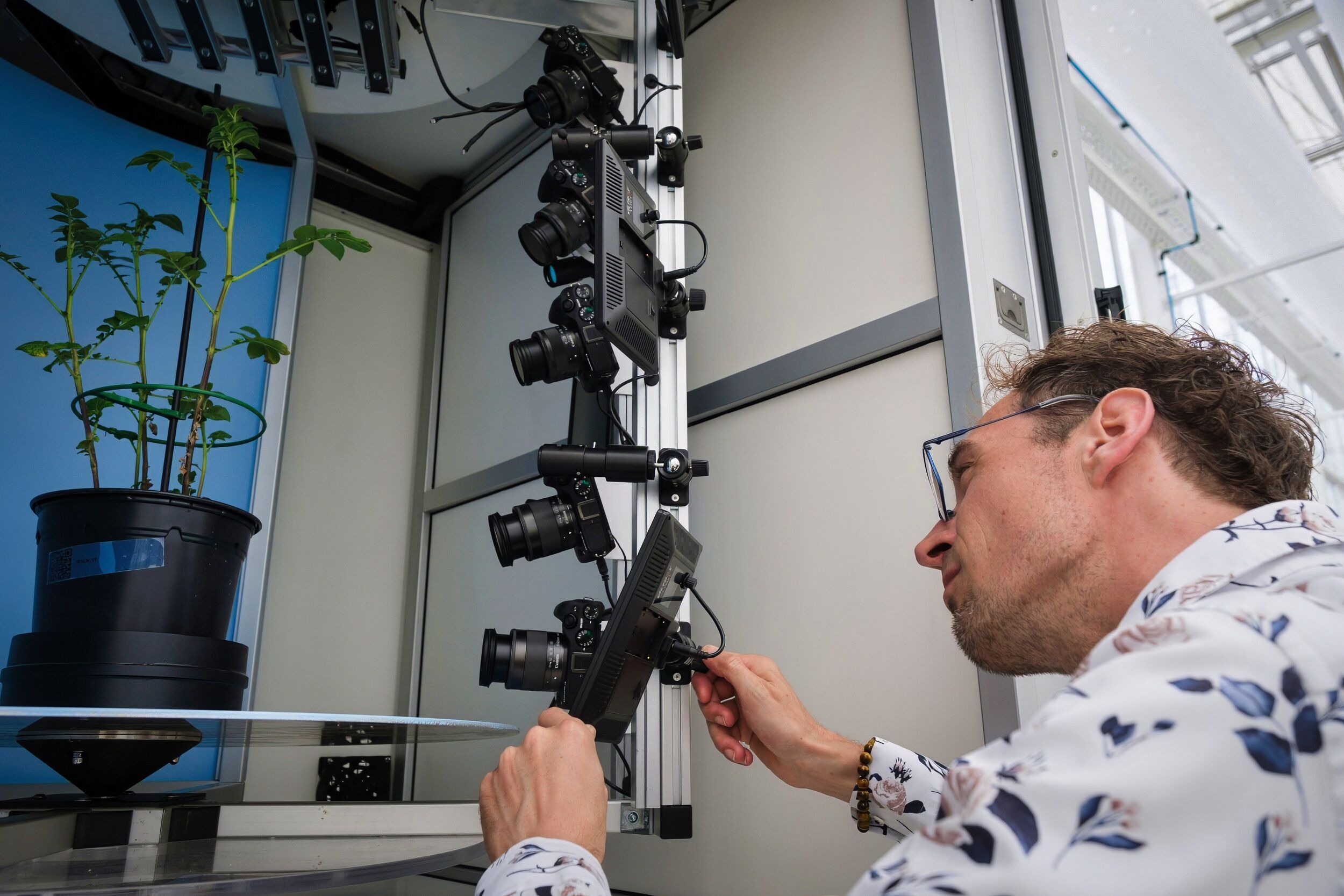Ronald Pierik is the new chairholder of the Molecular Biology group. After twenty years at Utrecht University, Pierik had chosen to continue his career in Wageningen. Good news for the environment, as Pierik has lived in Bennekom for many years now. Resource interviewed him on his first day at work.
You grew up in Heelsum but chose to study biology in Nijmegen rather than in Wageningen. Why?
‘Like many youngsters, I really wasn’t sure what I wanted to study. Originally, I registered for chemistry but eventually chose biology. Not in Wageningen because I felt that the biology programme focused on agriculture a little too much. I wanted to focus on the medical-molecular side. Moreover, Wageningen was very close by and also the place I would go out for evenings on the town. I wanted to broaden my horizons. I also obtained my PhD in Nijmegen.’
What was the topic of your dissertation?
‘My thesis had the title Ethylene and plant-neighbour detection. It is about the competition between plants and how they perceive each other. I discovered that plants use the volatile plant hormone ethylene as a signalling substance. In a lab in England, I subsequently discovered that this substance is also involved in translating light signals into growth adjustments in the plant.’
Nowhere else in the Netherlands will you find so much in the domain of plant biology
Ronald Pierik, chairholder Molecular Biology
Did you continue along that trajectory?
‘This knowledge proved useful when I went to Utrecht as a post-doc. There, I was able to build my own Photobiology group gradually, and I took the position of chairholder of Plant Environment Signalling. And that’s how we arrived here, two decades later.’
Why did you choose Wageningen now?
‘To be sure, I was quite happy in Utrecht. However, when this position became available, it got me thinking. Do I want to continue in Utrecht for another twenty years? I realised that challenging myself to something new could benefit me and my research. A change now and then is good, but it shouldn’t lead to a lesser position. Wageningen is a great opportunity for me. Nowhere else in the Netherlands will you find so much in the domain of plant biology.’
Was your choice affected by the founding of the new photosynthesis institute?
‘Photobiology is not the same as photosynthesis. Photobiology is about how light is perceived by plants and used to adjust to the environment. But there are certainly links with photosynthesis. I hope to explore these links further. It is somewhat strange that there are two different research domains for plants, both of which are related to light but which barely collaborate. That is a gap I aim to bridge. To this end, I have been collaborating with researchers from WUR, VU and Michigan University within the NWO (Dutch Research Council) photosynthesis consortium for a while now.’
Photobiology significantly impacts photosynthesis. I hope to explore these links further
Ronald Pierik, chairholder Molecular Biology
Will photobiology become a new branch within Wageningen’s Molecular Biology?
‘Yes. There wasn’t anyone in the group yet working on these processes. Hence, a few temporary researchers and a staff member, Andrés Romanowski, will join us from my group in Utrecht. Romanowski works on circadian (day/night, RK) rhythms in plants and how these cycles are adjusted to light. The research in the group is extremely diverse, ranging from nitrogen fixation to collaboration between plants and fungi and from the development of embryos to the link between harvest results and branching of grain. The common thread is what molecular networks drive the plants’ development, with a focus on interactions with the environment.’
Will new courses be developed?
‘That is not something I can say on my first day in this job. Molecular Biology and Cell Biology form a cluster that already offers a wide range of courses within different programmes. I hope to be able to add courses on, for example, photobiology. Some of the programmes’ curriculum is shifting, so this may well be a good moment.’




